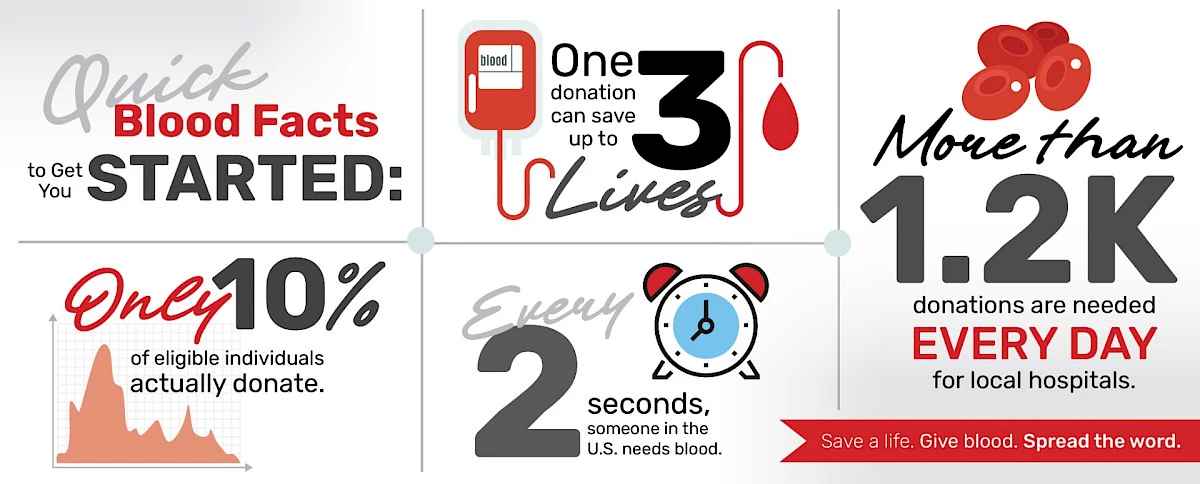
Why Donate Blood, Plasma and Platelets
Blood donation helps people in need in your community. Donors, especially those who donate regularly, keep our nation's blood supply stable. Although many people donate blood after disasters, blood is needed every day of the year.



